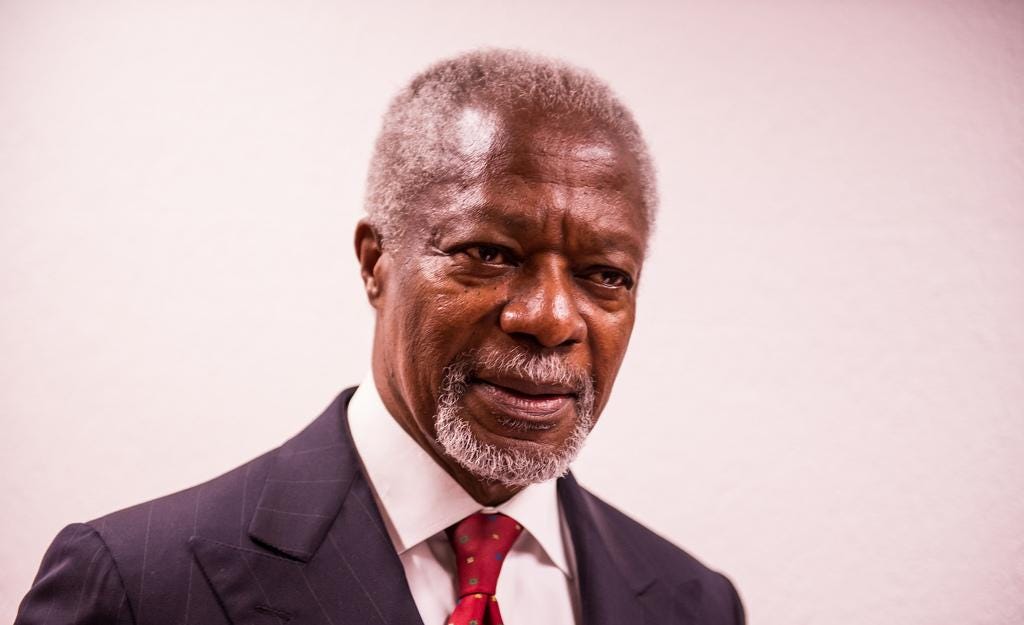Kofi Annan
Boutros Boutros-Ghali was the sixth Secretary General of the United Nations1. His tenure started in 1992, but already in 1996, the United States under Clinton/Gore (yes, them again) decided they wanted him out, allegedly because of fears of economic mismanagement, and general levels of bureaucracy.
A claim, somewhat at odds with reality.
His replacement came in the form of Kofi Annan, primarily credited for reforming the United Nations bureaucracy, and launching the UN Global Compact2. Well, that, along with the par-for-the-course corruption, this instance being an Oil-for-Food program, launched by - you guessed it - the Clinton/Gore admininstration3.
And as a side note - do realise that none other but Mark Malloch-Brown - the current president of Soros’s Open Society Foundation4 - is listed as his deputy.
However, take a closer look, and it becomes quite clear that things are not quite what they appear. Reviewing the budgets5, though - sure - they do increase in nominal terms during Boutros-Boutros Ghali, this pales in comparison to that observed under his successor, Kofi Annan - especially when considering real (post-inflation) terms; Annan trails by miles as is clearly observable in the below graph. Consequently, American objections appear suspicious - regardless of stated reasons.





